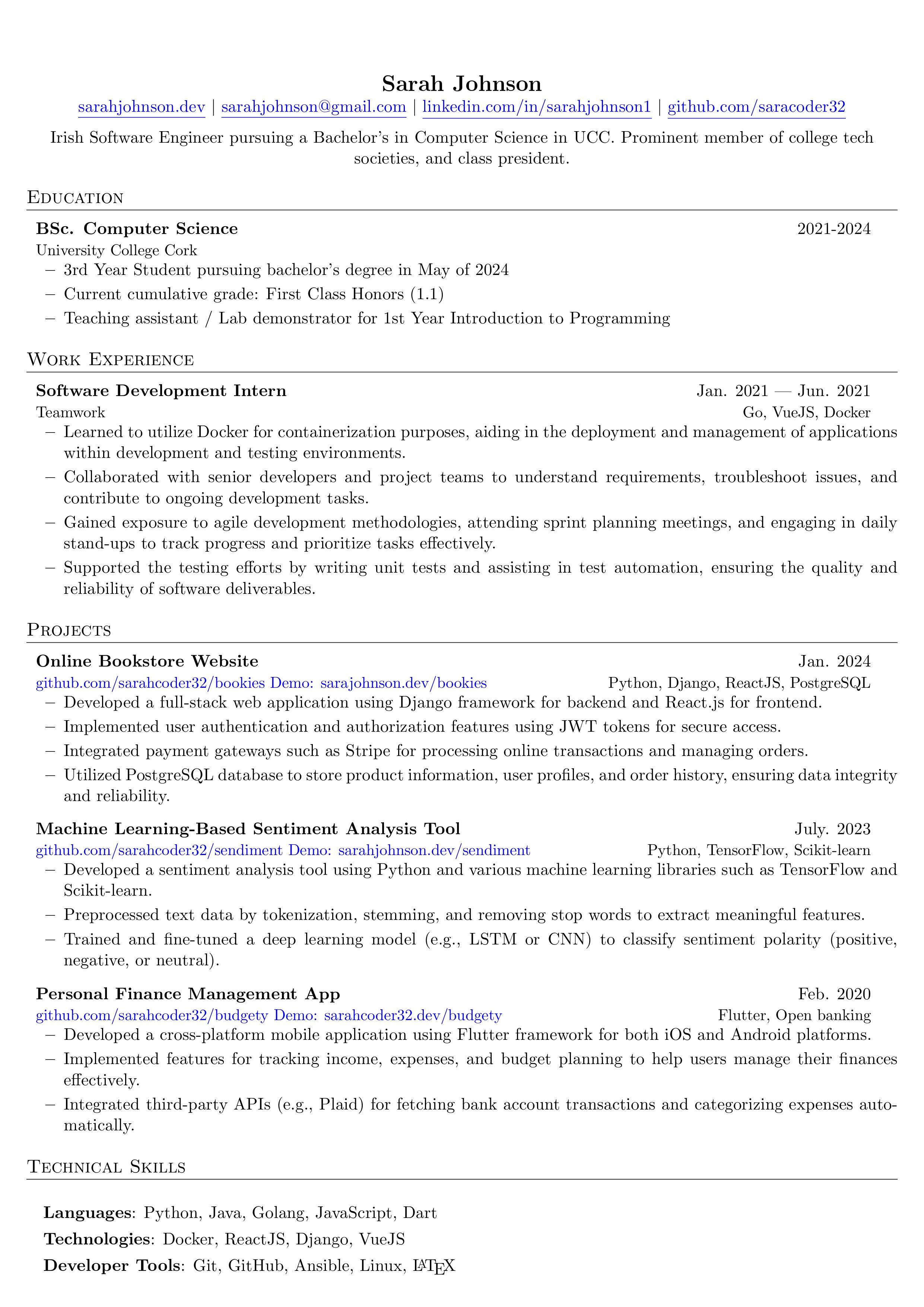Introduction
Every year I see students asking the internet for advice on how to get more interviews with their 4-page CV.

A lot of the time, it’s the same offending issues with their CV holding them back. Here’s a post describing what you need on a CV, and (more importantly) what not to include.
Check the ideal CV example on Overleaf.
Structure
The most important thing about structure is; do not exceed one page. I’m sorry, but you’re just not that interesting. In the current job market, employers are getting spammed with hundreds and thousands of CVs. If your one is verbose, they’re not even going to have time to scroll through your CV. So, you must make it one page, and easily parseable for a reader.
Follow the following order unless you have a very good reason otherwise.
Contact details
First, have a contact details section. You need your name, email address, LinkedIn, GitHub, and a personal website if you have one.
Education
Since you’re a student, the next section is your Education section. Don’t get too waffly here, don’t bother including your relevant coursework unless you have literally nothing else to fill a page.
Work experience
If you have relevant work experience, detail it here. If not that’s ok, just omit this.
Structure this section smartly, give a heading, the company you worked for, the time frame, and the technology stack (programming languages and frameworks) at the top. Then use bullet points to briefly describe what you did for this work experience. Don’t B.S. or waffle, this is going to come off badly to a reader. Just be somewhat honest and keep it concise.
Also, obviously don’t start every sentence with “I developed X… I worked on Y…”.
Projects
Again, since you’re a student, this section will be super important, since you may or may not have any relevant experience yet. Make sure to have all of these projects on GitHub and make sure that they’re not private. If you can host the project live as a demo, it would be a good move.
Like in the experience section, structure each project with a (short) title, the tech stack (programming languages and frameworks), and a rough date the main work was done for this project. Include a link to the GitHub repo, and if the project is a web project and hosted publicly, link the URL to the live URL.
Ideally, at least 3 projects here would be good. If you don’t have enough you could include some larger college assignments, given you’re comfortable making the code public.
Technical skills
This should be a very easily readable section since the reader will need to quickly pluck out any relevant requirements for the job - language, framework, etc.
Don’t do the skill “rating” type of stuff, it’s really really stupid, don’t put your experience down by saying you’re a novice in something, or hype yourself up and say you’re an expert in JavaScript, but don’t know the intricacies of the language. Just list languages and frameworks that you’ve either used in college or have actual work or project experience with.
What I do for structure here is have three categories: Languages, Technologies, and Developer Tools. Then either beside or under these categories, have a comma-separated list of relevant items.
Example preview
Here’s an example of how it looks using my template, using the above structure.

FAQs that nobody’s asked yet
ChatGPT Use
Looks Gemini To Me (LGTM)
Do not overuse LLMs to help you write your CV. Doing a little bit to reword sentences you write can be very useful. But making it write long-form sentences for you will start looking very generic, and boring and leave sort of smells that the reader can and will notice.
CV Template
Jake’ Resume template is the gold standard. It’s used by many people looking for software dev jobs. Check out reddit.com/r/cscareerquestions/search/?q=jakes if you don’t believe me.
I’ve made a slightly modified version of Jake’s Template here, which I feel makes a few minor updates that I like. It also lays out the ideal structure for students’ CVs.
I’m no longer a student/recent graduate, what changes?
When your education is no longer the most important aspect of your CV, deprioritize it, by moving it further down your CV. Replace the top space with your (now) richly-annotated Work Experience.